|
Bonds Lost More Than Stocks Last Year Long-term government bonds lost more than the S&P500® last year. This is important for us to know for many reasons, many of which are outlined below. Bond losses are central to the recent bank failures. The big banks have hedged their losses. However, regional and smaller banks could continue to experience challenges. As Lawrence Yun, the chief economist of the National Association of Realtors, wrote in a press release on May 3, 2023, the “fast rate hikes by the Fed have upended the balance sheets of many small regional banks. They are becoming zombie-like banks, unable to lend even to good businesses, as they are more concerned with balance sheet shuffling for survival.” Additionally, while banks can hedge themselves against losses and operate with nominal reserves and very low credit scores, neither one of those strategies are available for our personal household. Therefore, it’s critical for us to be ahead of the headlines in protecting our wealth, and in understanding what’s safe in a world where bonds lose more than stocks. When we wait for the headlines that a bank is in trouble or the economy is in a recession, it’s too late to protect our wealth. It’s a far better idea to fix the roof while the sun is still shining. Here Are the Four Key Points We Will Cover in This Blog. The Safe Side of our Nest Egg Isn’t Supposed to Lose Money Why the Banks Failed Over Half of the S&P 500® is At or Near Junk-Bond Status (including Banks) Getting a Safe Yield is Tricky And here is additional information on each of these areas. The Safe Side of our Nest Egg Isn’t Supposed to Lose Money When we go to a financial planner, they often give us a risk tolerance test. (In our system, we use our age and market conditions as a guide, rather than risk tolerance, because emotions are not our friend in investing.) Based upon the results of that test, the broker/salesman will determine how much of your financial plan you should keep safe from losses. Traditionally, equities are more at risk, but they provide higher gains as you can see in the 10- and 30-year charts of returns below. As an example, if you are 40 and you keep 60% safe because you’re conservative, or because you’re overweighting safe due to the risk of a recession, if the markets drop by half, which they have done in most 21st-century recessions, then your losses should be limited to just 20% or less. In most recessions, interest rates get cut and bonds perform very well. Those gains help to keep your wealth buoyant. Since 2022, with the rapid acceleration of interest rates, existing long-term bonds have lost a great deal of value. Bonds have been illiquid and negative-yielding for years. So the “safe” side of our wealth plan is not doing its job of protecting our principal. That has to do with both interest rate and credit risks. Why the Banks Failed We’ll talk about credit risk in the next point. Rapid increases in interest rates create interest rate risk. Banks that did not hedge against interest rate risk, such as the banks that failed, are vulnerable to having depositors withdraw their cash if/when the general public becomes concerned about the bank’s ability to stay afloat. Things have calmed down significantly since March because the Federal Reserve Board has set up a facility for qualified banks to get them through this period of unrealized bond losses. In the bank failures that have occurred so far, even noninsured depositors were protected. However, all of this happened under special provisions. There’s been no change to the FDIC policy, and we can’t tap the Fed’s help for our personal bond losses. Long-term bonds could outlive us, as many have 30-year terms or longer. So, waiting to get our money back could be a long, cold, low-FICO score winter. Therefore, it’s very important to take a serious look at the risk exposure on the “safe” side of our financial plan. Insurance companies that hold annuities, fund companies that sell us money market funds and other “safe“ products can be vulnerable, too. It’s very important to understand what is safe in a world where bonds are losing more than stocks. (I offer an unbiased second opinion that shows you the risks and protections of your current plan.) Here’s a link where you can read some of the comments that were made by the CEO of Silicon Valley Bank the week before it was seized by the FDIC and forced into bankruptcy. He wrote that the bank was “well capitalized.” As you can infer from his comments, the bank, insurance company, or fund company that wants to keep our business is not necessarily going to be forthright about the risks that we face. Those risks will, however, be found in the fine print, which is why it’s so important for us to know exactly what we own and why, rather than having blind faith that someone else is protecting our wealth for us. Over Half of the S&P 500® is At or Near Junk-Bond Status (including Banks) Over half of the S&P 500 is at or near junk-bond status. That includes a lot of banks and financial services companies as you can see in the charts below. Banks, brokerages, insurance companies, private equity, and hedge funds – essentially all of the financial services industry – don’t do well in recessions. Recall the fate of AIG, Countrywide, Merrill Lynch, Lehman Bros., and Bernie Madoff, etc. Some of these companies, such as Merrill Lynch, were rescued through a merger. If you take a closer look at the bank ratings above, you’ll notice that the Canadian and Australian banks are rated higher than the U.S. banks. We’ve been underweighting the financial industry in the United States for a few years now. As with long-term bonds, you’re just not getting paid enough to take on the risk. Other more highly rated banks and countries are also providing a higher yield. Getting a Safe Yield is Tricky 1-year Treasury bills are paying a higher yield than 2-year. Both are paying a much higher yield than 10 or 30 year. When that happens, it’s called a Negative Yield Curve. As you can see in the chart below Negative Yield Curves are 100% correlated with recessions since 1980. (The grey areas indicate recessions.) As former Federal Reserve Board Chairman Ben Bernanke pointed out in a recent Morgan Stanley videoconference, “Economists are very bad at predicting recessions.“ He also noted that the yield curve is very good at predicting them. For that reason (and a few more), we are overweighting 20% additional safe, based upon market conditions. Recessions are not announced until two quarters of negative growth have happened, and sometimes not even then, as we saw in 2022. Therefore, even if the U.S. economy does enter a recession in the second half of 2023 (as the Conference Board is predicting), the earliest we get the recession announcement will be at the end of January. Institutional investors are forward-thinking; they watch the data, not the headlines. That is why Main Street always gets caught up in such massive trauma and losses, after the whales have taken profits and the stock market has plunged. The Great Recession wasn’t officially announced until December 2008, after the Dow Jones Industrial Average had already lost over 45% (take another look at the chart at the top of the blog). Since the bottom was March 9, 2009 (6,547), most people were far closer to the bottom than the top when they became forlorn and wanted to stop the losses. Complacency abounded, even though there were economic storms on the horizon, in October of 2007, at the market high. Emotions are not our friend in investing. Again, when we wait for the headlines, we’re late. We might be feeling fairly complacent right now, even though the bank failures and Debt Ceiling Crisis are still fresh in our minds. We might be tempted to just “wait and see.” A better plan is always to be properly diversified and protected, and rebalance regularly to capture our gains. On Wall Street we call it, “Sticking to our knitting.” Bottom Line The “safe” side of our financial plan is there to preserve our wealth. It is not supposed to lose money. What can we do to determine if our plan has lost money or is at risk? At minimum, ask for a performance chart of your financial plan for the last 20 years, compared to the S&P500®. If your plan merely does with the S&P 500 does, then you are indeed exposed to a greater risk of losses than you might wish to be. Wisdom is the cure and the time is now to know exactly what we own and why, and to have a properly diversified and protected plan in place. You can learn about this at our online Investor Empowerment Retreat October 7-9, 2023. If you are interested in receiving an unbiased 2nd opinion before you go away on vacation, call 310-430-2397 or email [email protected] for pricing and information. Our unbiased 2nd opinion details exactly what you own, with color codes to show you what’s toxic in your portfolio, what’s great, and what should be better diversified. You will have a blueprint of how to get safe, protected, hot and diversified. Why is it unbiased? We don’t sell financial products. We have no incentive to sell you something that might lose money or that you don’t need. Our business model is financial education, providing the news, information, and education that Main Street investors need to thrive and live a richer life.  Join us for our Online Financial Freedom Retreat. Oct. 7-9, 2023. Email [email protected] to learn more. Register by June 30, 2023 to receive the best price and a complimentary private prosperity coaching session (value over $400). Click for testimonials, pricing, hours & details.  Join us for our Restormel Royal Immersive Adventure Retreat. March 8-15, 2024. Email [email protected] to learn more. Register with friends and family to receive the best price. Click for testimonials, pricing, hours & details. There is very limited availability, and you must register early to ensure that you get the exact room you want! This retreat includes an all-access pass to all of our online training for a full year for two! 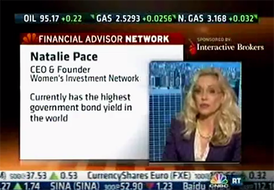 Natalie Wynne Pace is an Advocate for Sustainability, Financial Literacy & Women's Empowerment. Natalie is the bestselling author of The Power of 8 Billion: It's Up to Us and is the co-creator of the Earth Gratitude Project. She has been ranked as a No. 1 stock picker, above over 835 A-list pundits, by an independent tracking agency (TipsTraders). Her book The ABCs of Money remained at or near the #1 Investing Basics e-book on Amazon for over 3 years (in its vertical), with over 120,000 downloads and a mean 5-star ranking. The 5th edition of The ABCs of Money was released on September 17, 2021. Natalie Pace's easy as a pie chart nest egg strategies earned gains in the last two recessions and have outperformed the bull markets in between. That is why her Investor Educational Retreats, books and private coaching are enthusiastically recommended by Nobel Prize winning economist Gary S. Becker, TD AMERITRADE chairman Joe Moglia, Kay Koplovitz and many Main Street investors who have transformed their lives using her Thrive Budget and investing strategies. Click to view a video testimonial from Nilo Bolden. Check out Natalie Pace's Apple Podcast. Watch videoconferences and webinars on Youtube. Other Blogs of Interest Tesla's Model Y is the Bestselling Car in the World. 2023 Company of the Year Sell in May and Go Away? Do Cybersecurity Risks Create Investor Opportunities? Writers Strike, While Streaming CEOs Rake In Hundreds of Millions Annually. I Lost $100,000. Investors Ask Natalie. Artificial Intelligence Report. Micron Banned in China. Intel Slashes Dividend. Buffett Loses $23 Billion. Branson's Virgin Orbit Declares Bankruptcy. Insurance Company Risks. Schwab Loses $41 Billion in Cash Deposits. The Debt Ceiling Crisis. What's at Stake? Fiat. Crypto. Gold. BRICS. Real Estate. Alternative Investments. BRICS Currency. Will the Dollar Become Extinct? Empty Office Buildings & Malls. Frozen Housing Market. The Online Global Earth Gratitude Celebration 7 Green Life Hacks The Debt Ceiling. Will the U.S. Stop Paying Bills in June? Fossil Fuels Touch Every Part of Our Lives Are There Any Safe, Green Banks? 8 Fires the Federal Reserve Board Needs to Put Out. 7 Ways to Stash Your Cash Now. Lessons from the Silicon Valley Bank Failure. The 2 Best Solar Stocks Which Countries Offer the Highest Yield for the Lowest Risk? Rebalance By the End of March Solar, EVs, Housing, HSAs -- the Highest-Yield in 2023? Are You Anxious or Depressed over Money? Why We Are Underweighting Banks and the Financial Industry. You Stream all the Channels. Should You Invest, Too? NASDAQ is Still Down -26%. Are Meta & Snap a Buy? 2023 Bond Strategy Emotions are Not Your Friend in Investing Investor IQ Test Investor IQ Test Answers Bonds Lost -26%, Silver Held Strong. 2023 Crystal Ball for Stocks, Bonds, Real Estate, Cannabis, Gold, Silver. Tilray: The Constellation Brands of Cannabis New Year, New Healthier You Tesla's $644 Billion Fall From Mars Silver's Quiet Rally. Save Thousands Annually With Smarter Energy Choices Is Your FDIC-Insured Cash Really Safe? Money Market Funds, FDIC, SIPC: Are Any of Them Safe? My 24-Year-Old is Itching to Buy a Condo. Should I Help Him? The 12-Step Guide to Successful Investing. Gardeners Creating Sanctuary & Solutions in Food Deserts. The Bank Bail-in Plan on Your Dime. Rebalancing Your Nest Egg IQ Test. Answers to the Rebalancing Your Nest Egg IQ Test. Important Disclaimers Please note: Natalie Pace does not act or operate like a broker. She reports on financial news, and is one of the most trusted sources of financial literacy, education and forensic analysis in the world. Natalie Pace educates and informs individual investors to give investors a competitive edge in their personal decision-making. Any publicly traded companies or funds mentioned by Natalie Pace are not intended to be buy or sell recommendations. ALWAYS do your research and consult an experienced, reputable financial professional before buying or selling any security, and consider your long-term goals and strategies. Investors should NOT be all in on any asset class or individual stocks. Your retirement plan should reflect a diversified strategy, which has been designed with the assistance of a financial professional who is familiar with your goals, risk tolerance, tax needs and more. The "trading" portion of your portfolio should be a very small part of your investment strategy, and the amount of money you invest into individual companies should never be greater than your experience, wisdom, knowledge and patience. Information has been obtained from sources believed to be reliable. However, NataliePace.com does not warrant its completeness or accuracy. Opinions constitute our judgment as of the date of this publication and are subject to change without notice. This material is not intended as an offer or solicitation for the purchase or sale of any financial instrument. Securities, financial instruments or strategies mentioned herein may not be suitable for all investors. Tesla Model Y. The World’s Bestselling Car in 1Q 2023. Tesla sold 267,171 Model Ys in the first quarter of this year, of which 94,469 were sold in China, higher than 83,664 in the United States, and 71,114 in Europe, according to data provided by JATO and Reuters. However, the company still lags behind BYD, the top EV carmaker in the Chinese market. We Can Thank China for Lower Oil and Gas Prices Electric vehicle sales are on fire throughout the world. The fast growing domination of the EV is so robust that the International Energy Agency (IEA.org) is projecting that oil demand will fall by at least 5 million barrels a day by 2030. China’s robust EV adoption is one of the reasons why oil prices have dropped to $69.98/barrel, after peaking at $120/barrel on June 7 of 2022. China’s 2023 oil demand is expected to be just 1% above pre-pandemic 2019 levels. So, there are two distinct trends. EVs are the fastest growing vertical in cars, causing the oil industry to slowly, but surely, begin to lose some of its stranglehold on consumers. When gasoline prices are high, consumers struggle, and recessions are more likely, as consumer spending accounts for 68% of U.S. GDP. Oil prices plunge in recessions, as you can see in the chart above, in 2008 and 2020. The Chinese EV Market EV sales exceeded 10 million in 2022 worldwide, accounting for 14% of all new cars sold. 2023 could hit 14 million in sales, with 18% of the marketplace (source: IEA.org). That’s up from around 9% in 2021 and less than 5% in 2020. China accounted for about 60% of the 2022 total, with Europe in second, and the United States as the third largest market. China is making sure that they stay at the top of the list by extending their EV tax credits for another four years, and by adding charging facilities. The U.S. has an EV tax credit of up to $7,500 in place through 2032. However, there are plenty of rules to qualify, including price points and that there must be final assembly in North America. (Tesla's S and X models don't quality, while 3 and Y do.) So, which companies will dominate EV sales in 2023 and beyond, particularly in the largest market, China? As you can in the chart at the top of this blog, all of the top EV sellers in China are Chinese automakers, with the exception of Tesla at #2. Tesla is far behind BYD. Ford and General Motors are absent from the list. The Discount War There are so many vehicle brands vying for the Chinese EV marketplace that a discount war has broken out. As General Motors CEO Mary Barra told Reuters, “China has 100 vehicle brands vying for sales, and a 50% capacity utilization rate.” In order to compete, most companies have slashed prices. Inventories are rising. Ford has almost $10 billion finished products and $6.5 billion unfinished products and raw materials. GM has almost $18 billion in inventory. Tesla had trouble keeping up with demand last year, but had 15 days of inventory on hand as of the 1st quarter of 2023. Tesla’s year-over-year revenue growth was still 24% in the 1st quarter of this year, even with the price reductions. They are taking a hit on their net income, but are still profitable. Tesla’s net income was $2.5 billion in the 1st quarter, down -23.4% from $3.28 billion a year ago. BYD and low priced auto maker Li Auto, both Chinese, are experiencing the most robust revenue growth at 80% and 96.5%, respectively. In 2017, GM began a transition to an all-electric future by 2035. They have adopted campaign of “zero crashes, zero emissions, zero congestion.” In the 1st quarter of 2023, GM delivered over 462,000 vehicles to China in the 1st quarter and has a target of having 1/3 of the new launches to be New Energy Vehicles. In the meantime, GM’s profits are down by 25% in China (source: Reuters), and there is concern that a 2023 recession might materialize in the U.S., which can be bad for auto manufacturers. (Both GM and Chrysler had to declare bankruptcy in 2009.) China’s economy is expected to grow between 5.1% and 5.7% in 2023, which should help Tesla weather a U.S. recession. GM and Ford are looking to compete in the red-hot Chinese EV market to do the same. Tesla has a Solid Presence in China Meme Stock Darlings Nio and XPeng were meme stock darlings in late 2020 and early 2021. Both companies have seen their sales and their share prices implode. Nio and XPeng are trading in the $9-10 share price range, after soaring as high as $67 and $64, respectively. What happened? Both companies have lost market share, with XPeng reporting in the 1st quarter of 2023 that revenue had dropped by an astonishing -46%. The weakness has a lot to do with the discount wars and having so many companies vying for the same customer. Nio hopes to compete with an all new ES6 model, which started a delivery on May 25, 2023. They also have a lower priced ET5 and ET5 Touring, which they will launch on June 15. According to William Li, the founder, chairman and CEO of Nio, “Regarding the ET5, ET5 Touring, and ES6 overall volume, we believe there is an opportunity for us to still achieve a 20,000 units in one month.” That would be a substantial improvement on the 23,000-23,000 deliveries expected in the 2nd quarter for Nio. Nio is selling cars in Europe and even received the Car of the Year 2022 Award from Sweden (according to the Nio blog). Analysts are concerned about Nio’s cash burn. However, the company still has $5.5 billion, as of March 31, 2023. They’ve been forced to postpone cash breakeven to at least a year from now. XPeng has almost $5 billion in cash, restricted cash, short term, investments, and restricted time deposits. They are also launching a new model in June 2023, the G6. Dr. Hongdi Brian Gu, Honorary Vice Chairman and Co-President of XPENG, believes that the G6 will emerge as one of the most popular, bestselling models in China’s SUV market segment with the price range of $27,900-$41,800. (By comparison, Tesla’s model Y is in the $52,900 range.) According to Dr. Gu, “As the upcoming G6 launch and other new product launches fuel rapid sales growth, we expect our cash flow from operations to improve significantly.” Both Nio and XPeng are banking on their product launches of May and June to save the day in 2023 and going forward. We will know how they fare when the companies start releasing their vehicle deliveries data in the coming months. Both companies will have more bad news in the 2Q 2023 reports. Nio is projecting that its revenue will decline -9-15% year over year in the second quarter of 2023, while XPeng is expecting revenue to decrease -37-40%. This is already baked into the low share prices. All eyes will be on the monthly delivery reports to see if the turnaround is on track. The 2Q earnings reports for both of these companies will be released in late August, where we’ll get a peak of their success with the new product launches in the forward outlook. I plan to monitor the delivery reports in early July and August. So, be sure to check my Twitter feed on July 2 and August 2 for the updates. (If you aren't on Twitter, we post the feed on the home page at NataliePace.com.) Ford Motor Company Ford has announced a Ford+ plan which will “lead the electric vehicle revolution.” Despite that proclamation, over 90% of Ford’s vehicle sales come from internal combustion engines (ICE). Ford actually sold fewer electric vehicles in May 2023 than in May 2022, down -13%. It’s not surprising that Ford has been the laggard in EVs, given that the company is the most heavily mired in debt, pensions and other post-employment obligations (OPEBs). Ford is the only major U.S. auto manufacturer with a junk bond rating, at BB+ positive. The company’s debt to equity ratio is 3.29 compared to 0.07 for Tesla and 1.64 for General Motors. Ford’s total liabilities are $212.7 billion. The company’s current value is $56 billion. Last year Ford lost almost -$2 billion. The early stage Chinese manufacturers are losing a lot of money, as well. However, young companies that are building factories and investing to keep up with demand is a very different scenario than companies that are borrowing from fixed-income investors to pay off old debt. This becomes acute when a company is also losing a lot of money, as Ford did last year. The first quarter of 2023 was a lot better for Ford. The company had $1.8 billion in net income. However, they’ll need to restructure their Chinese operations and ramp up quickly to compete. With EVs growing so rapidly, it’s a question mark just how much longer ICE will keep Ford afloat… long enough for them to catch up to Tesla and GM in the race for EV dominance? Bottom Line EVs are on fire, thanks in a large part to the massive sales in China. Tesla has benefited greatly from that, while GM and Ford are lagging in the Chinese market. With the exception of BYD, which is the number one seller in China, many of the Chinese automakers have faced severe headwinds and competition. The companies that are winning the discount war, i.e. BYD and Tesla, have very high stock valuations at this time. (BYD is not traded on the Big Boards in the U.S.) Tesla is worth $818 billion, with 2022 net income of $12.6 billion, for a price-earnings ratio of 76. That’s pretty outlandish, even for a company that is increasing sales at 24.4% year over year. If Nio and XPeng are able to execute on their strategy, their share prices have a lot of room to soar. Nio’s price- sales ratio is 0.35, while XPeng’s is 0.82. (Both companies are still cash negative, so they don’t have a P/E ratio.) With the competition so fierce, a safer play could be investing in an ETF that specializes in EVs, such as the iShares IDRV. There you'll get exposure to most of the EV carmakers mentioned in this blog, including BYD. For those of you who have attended our Financial Empowerment Retreat and learned our time-proven, easy, pie chart system, this could be a hot slice. (If you haven't, join us Oct. 7-9, 2023 online.) If you would like a copy of the Auto Stock Report Card, simply email [email protected] with Auto Stock Report Card in the subject line. Full Disclosure: I have investments in some of the EV automakers listed in this blog. Email [email protected] or call 310-430-2397 if you are interested in learning time-proven investing, budgeting, debt reduction, college prep, ESG and home buying solutions that will transform your life and heal our planet at our next Financial Freedom Retreat. We spend one full day on what's safe, helping you to protect your wealth and reduce money stress. We also host sustainability adventures, where we walk in royal footsteps toward a richer life, all while living in greater harmony, by design. Click to learn more. 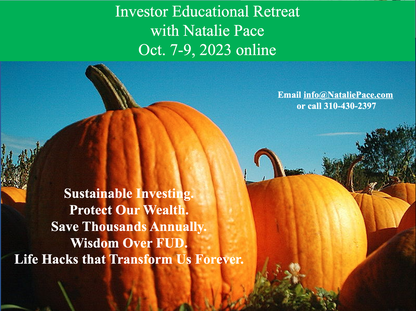 Join us for our Online Financial Freedom Retreat. Oct. 7-9, 2023. Email [email protected] to learn more. Register by June 30, 2023 to receive the best price and a complimentary private prosperity coaching session (value over $400). Click for testimonials, pricing, hours & details.  Join us for our Restormel Royal Immersive Adventure Retreat. March 8-15, 2024. Email [email protected] to learn more. Register with friends and family to receive the best price. Click for testimonials, pricing, hours & details. There is very limited availability, and you must register early to ensure that you get the exact room you want! This retreat includes an all-access pass to all of our online training for a full year for two! 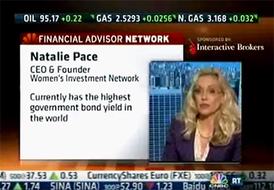 Natalie Wynne Pace is an Advocate for Sustainability, Financial Literacy & Women's Empowerment. Natalie is the bestselling author of The Power of 8 Billion: It's Up to Us and is the co-creator of the Earth Gratitude Project. She has been ranked as a No. 1 stock picker, above over 835 A-list pundits, by an independent tracking agency (TipsTraders). Her book The ABCs of Money remained at or near the #1 Investing Basics e-book on Amazon for over 3 years (in its vertical), with over 120,000 downloads and a mean 5-star ranking. The 5th edition of The ABCs of Money was released on September 17, 2021. Natalie Pace's easy as a pie chart nest egg strategies earned gains in the last two recessions and have outperformed the bull markets in between. That is why her Investor Educational Retreats, books and private coaching are enthusiastically recommended by Nobel Prize winning economist Gary S. Becker, TD AMERITRADE chairman Joe Moglia, Kay Koplovitz and many Main Street investors who have transformed their lives using her Thrive Budget and investing strategies. Click to view a video testimonial from Nilo Bolden. Check out Natalie Pace's Apple Podcast. Watch videoconferences and webinars on Youtube. Other Blogs of Interest 2023 Company of the Year Sell in May and Go Away? Do Cybersecurity Risks Create Investor Opportunities? Writers Strike, While Streaming CEOs Rake In Hundreds of Millions Annually. I Lost $100,000. Investors Ask Natalie. Artificial Intelligence Report. Micron Banned in China. Intel Slashes Dividend. Buffett Loses $23 Billion. Branson's Virgin Orbit Declares Bankruptcy. Insurance Company Risks. Schwab Loses $41 Billion in Cash Deposits. The Debt Ceiling Crisis. What's at Stake? Fiat. Crypto. Gold. BRICS. Real Estate. Alternative Investments. BRICS Currency. Will the Dollar Become Extinct? Empty Office Buildings & Malls. Frozen Housing Market. The Online Global Earth Gratitude Celebration 7 Green Life Hacks The Debt Ceiling. Will the U.S. Stop Paying Bills in June? Fossil Fuels Touch Every Part of Our Lives Are There Any Safe, Green Banks? 8 Fires the Federal Reserve Board Needs to Put Out. 7 Ways to Stash Your Cash Now. Lessons from the Silicon Valley Bank Failure. The 2 Best Solar Stocks Which Countries Offer the Highest Yield for the Lowest Risk? Rebalance By the End of March Solar, EVs, Housing, HSAs -- the Highest-Yield in 2023? Are You Anxious or Depressed over Money? Why We Are Underweighting Banks and the Financial Industry. You Stream all the Channels. Should You Invest, Too? NASDAQ is Still Down -26%. Are Meta & Snap a Buy? 2023 Bond Strategy Emotions are Not Your Friend in Investing Investor IQ Test Investor IQ Test Answers Bonds Lost -26%, Silver Held Strong. 2023 Crystal Ball for Stocks, Bonds, Real Estate, Cannabis, Gold, Silver. Tilray: The Constellation Brands of Cannabis New Year, New Healthier You Tesla's $644 Billion Fall From Mars Silver's Quiet Rally. Save Thousands Annually With Smarter Energy Choices Is Your FDIC-Insured Cash Really Safe? Money Market Funds, FDIC, SIPC: Are Any of Them Safe? My 24-Year-Old is Itching to Buy a Condo. Should I Help Him? The 12-Step Guide to Successful Investing. Gardeners Creating Sanctuary & Solutions in Food Deserts. The Bank Bail-in Plan on Your Dime. Rebalancing Your Nest Egg IQ Test. Answers to the Rebalancing Your Nest Egg IQ Test. Important Disclaimers Please note: Natalie Pace does not act or operate like a broker. She reports on financial news, and is one of the most trusted sources of financial literacy, education and forensic analysis in the world. Natalie Pace educates and informs individual investors to give investors a competitive edge in their personal decision-making. Any publicly traded companies or funds mentioned by Natalie Pace are not intended to be buy or sell recommendations. ALWAYS do your research and consult an experienced, reputable financial professional before buying or selling any security, and consider your long-term goals and strategies. Investors should NOT be all in on any asset class or individual stocks. Your retirement plan should reflect a diversified strategy, which has been designed with the assistance of a financial professional who is familiar with your goals, risk tolerance, tax needs and more. The "trading" portion of your portfolio should be a very small part of your investment strategy, and the amount of money you invest into individual companies should never be greater than your experience, wisdom, knowledge and patience. Information has been obtained from sources believed to be reliable. However, NataliePace.com does not warrant its completeness or accuracy. Opinions constitute our judgment as of the date of this publication and are subject to change without notice. This material is not intended as an offer or solicitation for the purchase or sale of any financial instrument. Securities, financial instruments or strategies mentioned herein may not be suitable for all investors. Company of the Year: Emeren I’m a little reticent to name a Company of the Year when a recession is forecasted for the 2nd half of 2023. When the general market weakens, even companies with great prospects can see their share prices sink, particularly microcaps. That makes the window of opportunity tight, or nonexistent – something to keep in mind when developing your exit strategy. Company of the Year: Emeren Emeren (previously Renesola) is a global solar company specializing in global solar projects in North America, Europe and Asia. Emeren has solar projects in Minnesota, North Carolina, Pennsylvania, California, Ontario, the United Kingdom, Poland, Italy and China. In the 1st quarter of 2023, Emeren’s revenue hit $12.9 million, a pop of 266% over the $3.5 million the company brought in during the 1st quarter of 2022. The 2nd quarter is expected to have $38-$40 million in revenue, up three times sequentially and 4.75 times higher than the 2nd quarter of 2022, which came in below their guidance, at $8.2 million. The 2023 full year revenue is projected to be $154-$174 million revenue with net income of $22-$26 million – more than double 2022 revenue and a fourfold increase in the net profit. Here are a few of the considerations for this exciting investment, which also has elevated risk, due to it being a microcap, and due to the macro conditions. The Solar Industry is Hot Flying Under the Radar of Reddit Strong Board of Directors Whale of an Investor Liquidity Concerns? Is Emeren a Good Price? And here is more color on each point. The Solar Industry is Hot The solar industry is benefitting from increasing demand, higher Power Purchase Agreements and favorable government policies. More than half of the new power generation in 2023 in the U.S. will be solar, at 29.1 GW. According to the Energy Information Administration (EIA.gov), the U.S. electric grid operated with 74 gigawatts (GW) of solar photovoltaic capacity at the end of 2022. That is expected to increase by another 63 GW (+84%) by the end of 2024. While the growth is strong and steady in solar, sun power generation will only be 6% of the U.S. grid by 2024 (up from 3% in 2022). If the commitment to power with renewables remains strong going forward, there is a lot of runway left for the industry. Flying Under the Radar of Reddit Emeren benefits from having an easy ticker on the New York Stock Exchange (symbol: SOL). Sadly, however, that is the same as Solana’s crypto call letters (SOL). (Read my FTX blog for more information on why Solana is trading at an all-time low.) Emeren is only covered by a handful of analysts, who all recommend purchasing Emeren. Two recommendations are a strong buy and two are a buy. Things can heat up quickly, particularly if a company hits the technical charts with a bullet. Emeren (formerly Renesola) has been a Meme Stock Darling in the past, hitting a high of almost $36 on Jan. 22, 2021. At its current price of $3.75, if it manages to shoot that high again, that would be a gain of over 9-fold. It’s more difficult to Shoot the Moon in a slow-growth or recessionary year (although that didn’t stop Stimmy Check funded flights in 2020). We certainly have seen rapid-fire runups this year in companies like Nvidia and Tesla – on news that was positive, but not nearly as noteworthy as the revenue growth of Emeren. The NASDAQ Composite Index is up 32% so far in 2023. However, as you can see in the chart above, outsized run-ups tend to reverse themselves quite rapidly, particularly with small and micro cap stocks. So, it’s a good idea to have Emeren (SOL) on a stock app on our smart phone, with price alerts, and every other bell and whistle we can think of to help us to sell high if it soars to lofty levels. Strong Board of Directors CEO and board director Yumin Liu came from Canadian Solar. Martin Bloom, who has been a board director since 2006, has 40 years of experience leading strategic partnerships between Europe, the U.S. and China. In 2005, Mr. Bloom was appointed to serve as the UK chairman of the China-UK Venture Capital Joint Working Group, launched by the then-Chancellor of the United Kingdom, Gordon Brown. Whale of an Investor Emeren’s chairman of the board, Himanshu H. Shah, owns over 27% of the company. His bio names him a “long-term investor.” However, whenever a whale slaps his tail in the water, waves ripple throughout the ocean. And if he decides to breach, smaller fish will drown. Mr. Shau joined the board in March of 2022 (with 22% ownership) and became Chairman of the Board on Nov. 22, 2022. Liquidity Concerns? We’ve seen small companies get destroyed due to liquidity concerns over the past two years. Tight credit conditions and higher interest rates elevate the risk for any company that might need to borrow money – particularly a microcap company. Emeren had $66.7 million cash on hand at the end of the 1st quarter of 2023. They burned through $40.4 million in the 1st quarter, which would seem as though they are flying too close to the trees. However, as outlined above in their 1st quarter 2023 Shareholder Letter, the company is expecting robust revenue growth and a net income of $22-$26 million. These forecasts are reliant upon “the expected closures of over 300 MW of project sales in Europe and U.S.” As long as things run on track, investors should be pleased with the results. Emeren is so confident in their cash position that the company has a share repurchase plan in place. They repurchased $13.2 million of their shares in the 1st quarter and have $17 million left available for more purchases. They plan to continue the buybacks, according to the 1Q 2023 Shareholder Letter. Is Emeren a Good Price? Currently Emeren’s Price/Earnings ratio is 35.53, due to having only a small amount of net profit in 2022, at $5.9 million. However, if the company hits their 2023 net profit target of $22-$26 million, then their forward P/E becomes quite a bargain, at under 10. There is a similar issue with the Price/Sales. 2022 was a disappointing year for a lot of solar companies, including Emeren, which saw its annual revenue slump to $61.3 million in 2022, from almost $80 million in 2021. According to EIA.gov, the U.S. solar capacity declined by 23% in 2022 from 2021, due to pandemic-related challenges, including supply chain disruptions. With delayed 2022 projects coming online in 2023, the EIA is projecting to install 29.1 GW of solar power in the U.S., the highest ever, beating 13.4 GW in 2021. Emeren’s forecast of $154-$174 million in 2023 revenue brings the Price/Sales ratio down to an appetizing 1.28 (in the mid-range of the projection). Emeren was trading near an all-time low, at $3.75 at the market close on Friday, June 16, 2023. If you'd like a copy of our Solar Stock Report Card, email [email protected]. Bottom Line There is a robust solar industry tailwind that is underpinning the expected impressive revenue growth of Emeren. At the same time, the macro considerations (a potential recession in the 2nd half of 2023) are meaningful. There are no guarantees which way the wind will blow. The predictions are bright for solar and Emeren. If we buy into this Company of the Year pick, we’re purchasing near an all-time low, with high expectations of what might happen if SOL becomes a Meme Stock Darling again. At the same time, it’s a good idea to factor in the amount of babysitting required for small caps these days, and determine if you’re really interested in keeping tabs on whether or not Emeren hits its targets, and how quickly we must capture gains before the recession kicks in and potentially drags all share prices down. Full disclosure: I plan to purchase shares of Emeren on Tuesday, June 20, 2023, four days after this blog was published. (The markets are closed on Monday, June 19, 2023.) Email [email protected] or call 310-430-2397 if you are interested in learning time-proven investing, budgeting, debt reduction, college prep, ESG and home buying solutions that will transform your life and heal our planet at our next Financial Freedom Retreat. We spend one full day on what's safe, helping you to protect your wealth and reduce money stress. We also host sustainability adventures, where we walk in royal footsteps toward a richer life, all while living in greater harmony, by design. Click to learn more. 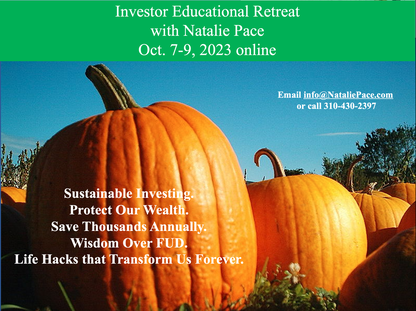 Join us for our Online Financial Freedom Retreat. Oct. 7-9, 2023. Email [email protected] to learn more. Register by June 30, 2023 to receive the best price and a complimentary private prosperity coaching session (value over $400). Click for testimonials, pricing, hours & details.  Join us for our Restormel Royal Immersive Adventure Retreat. March 8-15, 2024. Email [email protected] to learn more. Register with friends and family to receive the best price. Click for testimonials, pricing, hours & details. There is very limited availability, and you must register early to ensure that you get the exact room you want! This retreat includes an all-access pass to all of our online training for a full year for two! 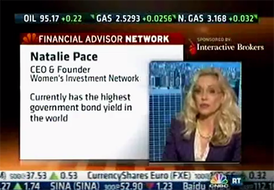 Natalie Wynne Pace is an Advocate for Sustainability, Financial Literacy & Women's Empowerment. Natalie is the bestselling author of The Power of 8 Billion: It's Up to Us and is the co-creator of the Earth Gratitude Project. She has been ranked as a No. 1 stock picker, above over 835 A-list pundits, by an independent tracking agency (TipsTraders). Her book The ABCs of Money remained at or near the #1 Investing Basics e-book on Amazon for over 3 years (in its vertical), with over 120,000 downloads and a mean 5-star ranking. The 5th edition of The ABCs of Money was released on September 17, 2021. Natalie Pace's easy as a pie chart nest egg strategies earned gains in the last two recessions and have outperformed the bull markets in between. That is why her Investor Educational Retreats, books and private coaching are enthusiastically recommended by Nobel Prize winning economist Gary S. Becker, TD AMERITRADE chairman Joe Moglia, Kay Koplovitz and many Main Street investors who have transformed their lives using her Thrive Budget and investing strategies. Click to view a video testimonial from Nilo Bolden. Check out Natalie Pace's Apple Podcast. Watch videoconferences and webinars on Youtube. Other Blogs of Interest Sell in May and Go Away? Do Cybersecurity Risks Create Investor Opportunities? Writers Strike, While Streaming CEOs Rake In Hundreds of Millions Annually. I Lost $100,000. Investors Ask Natalie. Artificial Intelligence Report. Micron Banned in China. Intel Slashes Dividend. Buffett Loses $23 Billion. Branson's Virgin Orbit Declares Bankruptcy. Insurance Company Risks. Schwab Loses $41 Billion in Cash Deposits. The Debt Ceiling Crisis. What's at Stake? Fiat. Crypto. Gold. BRICS. Real Estate. Alternative Investments. BRICS Currency. Will the Dollar Become Extinct? Empty Office Buildings & Malls. Frozen Housing Market. The Online Global Earth Gratitude Celebration 7 Green Life Hacks The Debt Ceiling. Will the U.S. Stop Paying Bills in June? Fossil Fuels Touch Every Part of Our Lives Are There Any Safe, Green Banks? 8 Fires the Federal Reserve Board Needs to Put Out. 7 Ways to Stash Your Cash Now. Lessons from the Silicon Valley Bank Failure. The 2 Best Solar Stocks Which Countries Offer the Highest Yield for the Lowest Risk? Rebalance By the End of March Solar, EVs, Housing, HSAs -- the Highest-Yield in 2023? Are You Anxious or Depressed over Money? Why We Are Underweighting Banks and the Financial Industry. You Stream all the Channels. Should You Invest, Too? NASDAQ is Still Down -26%. Are Meta & Snap a Buy? 2023 Bond Strategy Emotions are Not Your Friend in Investing Investor IQ Test Investor IQ Test Answers Bonds Lost -26%, Silver Held Strong. 2023 Crystal Ball for Stocks, Bonds, Real Estate, Cannabis, Gold, Silver. Tilray: The Constellation Brands of Cannabis New Year, New Healthier You Tesla's $644 Billion Fall From Mars Silver's Quiet Rally. Save Thousands Annually With Smarter Energy Choices Is Your FDIC-Insured Cash Really Safe? Money Market Funds, FDIC, SIPC: Are Any of Them Safe? My 24-Year-Old is Itching to Buy a Condo. Should I Help Him? The 12-Step Guide to Successful Investing. Gardeners Creating Sanctuary & Solutions in Food Deserts. The Bank Bail-in Plan on Your Dime. Rebalancing Your Nest Egg IQ Test. Answers to the Rebalancing Your Nest Egg IQ Test. Important Disclaimers Please note: Natalie Pace does not act or operate like a broker. She reports on financial news, and is one of the most trusted sources of financial literacy, education and forensic analysis in the world. Natalie Pace educates and informs individual investors to give investors a competitive edge in their personal decision-making. Any publicly traded companies or funds mentioned by Natalie Pace are not intended to be buy or sell recommendations. ALWAYS do your research and consult an experienced, reputable financial professional before buying or selling any security, and consider your long-term goals and strategies. Investors should NOT be all in on any asset class or individual stocks. Your retirement plan should reflect a diversified strategy, which has been designed with the assistance of a financial professional who is familiar with your goals, risk tolerance, tax needs and more. The "trading" portion of your portfolio should be a very small part of your investment strategy, and the amount of money you invest into individual companies should never be greater than your experience, wisdom, knowledge and patience. Information has been obtained from sources believed to be reliable. However, NataliePace.com does not warrant its completeness or accuracy. Opinions constitute our judgment as of the date of this publication and are subject to change without notice. This material is not intended as an offer or solicitation for the purchase or sale of any financial instrument. Securities, financial instruments or strategies mentioned herein may not be suitable for all investors. Should We Sell in May and Go Away? (OK… June.) “Sell in May and go away” is a common Wall Street aphorism. I prefer to say, “Rebalance in May, so that we have a good holiday.” If you haven’t rebalanced yet in 2023, then now is a great time to do so. Read on for why… Today’s FOMC Board Meeting As expected, the Feds paused their interest rates hikes today, even though inflation is still double from where they want it to be. About 2/3rds of Wall Street insiders surveyed expect a rate hike of 25 basis points at the FOMC meeting on July 26, 2023. As long as things go as expected, there shouldn’t be any market tantrums. However, given that part of the recent strength is due to share repurchases (companies buying back their own stock), there could be weaker performance in the months ahead, particularly if the companies get taxed on buybacks, or need to preserve capital for other reasons. That is most likely in the banking industry, which was #1 on the share buyback list for 1Q 2023. Things are Bright, Right? Everything is looking pretty sunny… on the surface. At 4,369, the S&P500 is back to the levels we enjoyed in April of 2022, and only slightly down from the high of 4,818.62 set on Jan. 4, 2022. We haven’t heard about any more bank problems since the failure of First Republic Bank on May 1, 2023. However, regional banks like Pacwest, Western Alliance, Zion and Truist are still trading at prices that are -52% to -82% from those enjoyed in January of 2022. (These and other regional banks experienced multi billions in withdrawals from depositors in the 1st quarter of this year.) According to S&P Dow Jones Indices, financials repurchased their own stock on a mad buying spree in the 1Q of 2023 of $46.9 billion, beating out technology’s buybacks of $45.9 billion (the #1 and #2 industries). Berkshire Hathaway, Wells Fargo, Goldman Sachs, Charles Schwab, JPMorgan Chase and Bank of America were in the top 25 share repurchasers in Q1 2023, with $2.2 billion (BofA) to $4.45 billion (Berkshire) in buybacks. With the bank stress tests happening this month and the markets stabilized from the bank failures, there could be fewer share repurchases by the financial industry in the coming months. The bank stress tests should be reported at the end of June. Why Rebalance Now? Despite the impressive Spring Rally that saw a 10% rise on Wall Street over the past three months, there are more than a few economic storms on the horizon. It’s always a great idea to fix the roof while the sun is still shining. When we wait for the headlines that a disaster has occurred, it’s too late to protect our wealth. Below are just a few of the conditions that are worthy of being monitored. What could possibly happen while we’re on vacation? Recession? A recession is forecast for the US in the 2nd half of 2023. While everyone hopes it will be mild, there are more than a few areas of vulnerability that could cause financial instability. If there is a recession, Main Street won’t get the first headline of negative growth before the end of October, and the first official declaration of a recession won’t happen until early 2024. However, it’s important to remember that the whales move Wall Street, and are always first to respond – well before the headlines. Market timing, or trying to jump all in or all out, is never a good idea. However, proper diversification with 1-3 times a year rebalancing has worked brilliantly in the 21st century, at a time when recessions typically cost equity investors more than half of their wealth. Financial Services Companies Don’t Do Well in Recessions Almost 500 banks failed between 2008 and 2013 (source: FDIC). Many brokerages and insurance companies were bailed out, were forced into a merger or went bankrupt. (You might remember AIG, the largest insurance and annuity provider, was bailed out big-time in 2008.) In a press release from May 3, 2023, Lawrence Yun, the chief economist of the National Association of Realtors, had a very stern condemnation of the Federal Reserve’s rapid-fire raising of interest rates. He wrote that it was “unnecessary and harmful,” and that the “fast rate hikes by the Fed have upended the balance sheets of many small regional banks. They are becoming zombie-like banks, unable to lend even to good businesses, as they are more concerned with balance sheet shuffling for survival.” Bank earnings are going to look prettier than they actually are, thanks to financial engineering and the Fed Fund facility that allows qualified banks to not have to declare the losses in their bond portfolio on their quarterly earnings reports. However, as you can see in the chart below, long-term government bonds lost -26% last year. According to the May 2023 Financial Stability Report, “by the end of 2022, banks had declines* in fair value of $277 billion in AFS* portfolios and $341 billion in HTM* portfolios.” *Declines: losses. AFS: Assets for Sale. HTM: Held to Maturity In the liquidity chart below, you’ll find that corporate bonds are very illiquid (meaning you can't sell them). (They’ve been illiquid since before the pandemic.) If you have long-term corporate bonds, they have lost a lot of value, will be difficult to unload without taking a loss and were riskier when you purchased them than most investors realized. Holding these bonds to term might not be possible due to debt restructuring, liquidity needs or the fact that some have terms longer than most of us will live. These are some of the most important reasons why it’s very important to do a rebalancing now, and understand everything we own, even things that we’ve been told are safe. (You might want to check out our Ask Natalie blog on the person who lost $100,000…) Bonds aren’t the only problem for banks. There are also issues with mortgage originations, commercial real estate and loans. Banks are suffering from a frozen real estate market and the loss of mortgage origination revenue. Commercial real estate, particularly empty office buildings and malls with high vacancies, are problems that are waiting in the wings and have a potential to escalate into a crisis rather rapidly. While rising interest rates are a positive for banks in their floating-rate portfolios, most mortgages are fixed-rates. Read my blog on the risks that Empty Office Buildings pose for financial institutions, including insurance companies. You should also check out the Financial Stability Report that was released in May of 2023. If you’d like an unbiased opinion on your current wealth plan, email [email protected] for pricing and information. Once you know what you own, how much you have at risk, and what a better plan looks like, it’s easier to protect your wealth. Over Half of the S&P 500 is At or Near Junk Bond Status The weakness in banks is unlikely to be over. It has a lot to do with the weakness in bonds, and also the poor credit quality of so many U.S. corporations, including banks. Over half of the S&P500 is at or near junk bond status. August: Toxic Dumping Ground It’s very common for bad news to occur in the summer, on the weekend, after hours or a combination of all of the above. Lehman brothers declared bankruptcy in August of 2008. The debt ceiling showdown that resulted in the first ever U.S. credit downgrade (by S&P Global) happened in August of 2011. Why can summer be surprisingly toxic? Because no investment banker wants to be in New York City (Wall Street) in August. That’s the month that they all run off to their yachts in the French Riviera, which is likely a factor in September being the worst performing month of the year, historically. The theory is that if you dump bad news on the weekend, after hours or while everyone is on a vacation, people will have time to digest it before reacting... Even though summer has lower trading volumes and can be up and down. It’s always a good idea to protect your wealth before the headlines occur (now). When you wait for the headlines, it’s too late. September: the Worst Performing Month of the Year I use the phrase “Back to School stock sales” to characterize September. However, I’m referring to the opportunities that often present themselves toward the end of the month. If there is a recession in 2023, it won’t be announced officially until at least end of January 2024, and likely later. However, institutional investors and hedge fund managers are forward thinking. The big money makes its moves long before the recession is officially announced. The Great Recession didn’t become official until October of 2008, after losses of over 45% in the Dow Jones Industrial Average. (Our warning came in December of 2007; the market high was October of 2007.) With the money so hot and fast on Wall Street these days, our best strategy is to use the pie chart system and rebalance once, twice or three times a year. Knowing what is safe at a time when long-term bonds are losing more than stocks is essential as well. I prefer rebalancing at the end of April, after the Spring Rally. However, if that didn’t occur, then now is a good time to batten down the hatches of our financial home before we go on vacation. A 2nd rebalancing might occur at the end of September and before the Santa Rally, in case there are any funds or stocks that are on sale. Another rebalancing at the end of December helps us to capture any gains we’ve earned during the Santa Rally. Expensive Equities Stock prices are very expensive. According to the Buffet Indicator, stocks haven’t been this expensive in over half a century. The trend line for overvalued equities typically has swift and severe corrections. As one example, the S&P500 lost almost 40% between February 19 and March 23, 2020, during the pandemic. According to the Cape Ratio chart (below), the only time stocks were more expensive than today was during the Dot Com Recession and the Great Depression. In the Dot Com Recession, the NASDAQ Composite Index plunged 78%, and took 15 years to crawl back to even. We all know what happened in the Great Depression. We’ve made it through the Debt Ceiling crisis, the first round of bank failures and the 2022 bear market. However, we still have the bank stress tests (end of this month), inflation, quantitative tightening, rising interest rates, bond losses, more weakness in financial services (potentially in insurance companies), depleted savings in households, too many Americans living paycheck-to-paycheck and a potential recession in the 2nd half of 2023. For additional information on the Fires the Fed still needs to put out, read my blog (click to access). Bottom Line A lot of people are simply not aware of how the massive amount of debt, leverage and high prices effect the stock market. Market timing isn’t a good strategy. However, our easy-as-a-pie-chart nest egg strategies with regular rebalancing earned gains in the Dot Com and Great Recessions and outperformed the bull markets in between. So, rebalance in May (or now, in mid-June), so that you can have a good holiday. Be the boss of your money, rather than having blind faith that someone else is protecting your future. If you have never really known what it is that you own in your retirement accounts or managed brokerage accounts, now is the time to learn the life math that we all should have received in high school. You can start by asking your financial planner for a performance chart of your portfolio compared to the S&P500 for the last 20 years. (You need to see a chart that goes back to 2006, so that you can see what happened in the Great Recession.) If your portfolio just shadows what the S&P500 does, then you are at an elevated risk of losing a lot of money. It’s important to remember again what kind of losses that 21st-century recessions have cost investors. As we get closer to retirement, we can’t afford to lose so much, and then hope and pray to crawl back to even before we stop working. Wisdom and time-proven systems are the cure. The time is now. Email [email protected] or call 310-430-2397 if you are interested in learning time-proven investing, budgeting, debt reduction, college prep, ESG and home buying solutions that will transform your life and heal our planet at our next Financial Freedom Retreat. We spend one full day on what's safe, helping you to protect your wealth and reduce money stress. 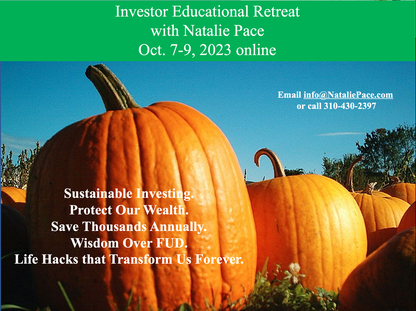 Join us for our Online Financial Freedom Retreat. Oct. 7-9, 2023. Email [email protected] to learn more. Register by June 30, 2023 to receive the best price and a complimentary private prosperity coaching session (value over $400). Click for testimonials, pricing, hours & details.  Join us for our Restormel Royal Immersive Adventure Retreat. March 8-15, 2024. Email [email protected] to learn more. Register with friends and family to receive the best price. Click for testimonials, pricing, hours & details. There is very limited availability, and you must register early to ensure that you get the exact room you want! This retreat includes an all-access pass to all of our online training for a full year for two! 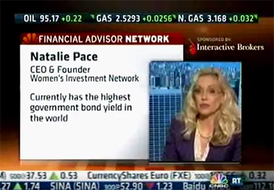 Natalie Wynne Pace is an Advocate for Sustainability, Financial Literacy & Women's Empowerment. Natalie is the bestselling author of The Power of 8 Billion: It's Up to Us and is the co-creator of the Earth Gratitude Project. She has been ranked as a No. 1 stock picker, above over 835 A-list pundits, by an independent tracking agency (TipsTraders). Her book The ABCs of Money remained at or near the #1 Investing Basics e-book on Amazon for over 3 years (in its vertical), with over 120,000 downloads and a mean 5-star ranking. The 5th edition of The ABCs of Money was released on September 17, 2021. Natalie Pace's easy as a pie chart nest egg strategies earned gains in the last two recessions and have outperformed the bull markets in between. That is why her Investor Educational Retreats, books and private coaching are enthusiastically recommended by Nobel Prize winning economist Gary S. Becker, TD AMERITRADE chairman Joe Moglia, Kay Koplovitz and many Main Street investors who have transformed their lives using her Thrive Budget and investing strategies. Click to view a video testimonial from Nilo Bolden. Check out Natalie Pace's Apple Podcast. Watch videoconferences and webinars on Youtube. Other Blogs of Interest Do Cybersecurity Risks Create Investor Opportunities? Writers Strike, While Streaming CEOs Rake In Hundreds of Millions Annually. I Lost $100,000. Investors Ask Natalie. Artificial Intelligence Report. Micron Banned in China. Intel Slashes Dividend. Buffett Loses $23 Billion. Branson's Virgin Orbit Declares Bankruptcy. Insurance Company Risks. Schwab Loses $41 Billion in Cash Deposits. The Debt Ceiling Crisis. What's at Stake? Fiat. Crypto. Gold. BRICS. Real Estate. Alternative Investments. BRICS Currency. Will the Dollar Become Extinct? Empty Office Buildings & Malls. Frozen Housing Market. The Online Global Earth Gratitude Celebration 7 Green Life Hacks The Debt Ceiling. Will the U.S. Stop Paying Bills in June? Fossil Fuels Touch Every Part of Our Lives Are There Any Safe, Green Banks? 8 Fires the Federal Reserve Board Needs to Put Out. 7 Ways to Stash Your Cash Now. Lessons from the Silicon Valley Bank Failure. The 2 Best Solar Stocks Which Countries Offer the Highest Yield for the Lowest Risk? Rebalance By the End of March Solar, EVs, Housing, HSAs -- the Highest-Yield in 2023? Are You Anxious or Depressed over Money? Why We Are Underweighting Banks and the Financial Industry. You Stream all the Channels. Should You Invest, Too? NASDAQ is Still Down -26%. Are Meta & Snap a Buy? 2023 Bond Strategy Emotions are Not Your Friend in Investing Investor IQ Test Investor IQ Test Answers Bonds Lost -26%, Silver Held Strong. 2023 Crystal Ball for Stocks, Bonds, Real Estate, Cannabis, Gold, Silver. Tilray: The Constellation Brands of Cannabis New Year, New Healthier You Tesla's $644 Billion Fall From Mars Silver's Quiet Rally. Save Thousands Annually With Smarter Energy Choices Is Your FDIC-Insured Cash Really Safe? Money Market Funds, FDIC, SIPC: Are Any of Them Safe? My 24-Year-Old is Itching to Buy a Condo. Should I Help Him? The 12-Step Guide to Successful Investing. Gardeners Creating Sanctuary & Solutions in Food Deserts. The Bank Bail-in Plan on Your Dime. Rebalancing Your Nest Egg IQ Test. Answers to the Rebalancing Your Nest Egg IQ Test. Important Disclaimers Please note: Natalie Pace does not act or operate like a broker. She reports on financial news, and is one of the most trusted sources of financial literacy, education and forensic analysis in the world. Natalie Pace educates and informs individual investors to give investors a competitive edge in their personal decision-making. Any publicly traded companies or funds mentioned by Natalie Pace are not intended to be buy or sell recommendations. ALWAYS do your research and consult an experienced, reputable financial professional before buying or selling any security, and consider your long-term goals and strategies. Investors should NOT be all in on any asset class or individual stocks. Your retirement plan should reflect a diversified strategy, which has been designed with the assistance of a financial professional who is familiar with your goals, risk tolerance, tax needs and more. The "trading" portion of your portfolio should be a very small part of your investment strategy, and the amount of money you invest into individual companies should never be greater than your experience, wisdom, knowledge and patience. Information has been obtained from sources believed to be reliable. However, NataliePace.com does not warrant its completeness or accuracy. Opinions constitute our judgment as of the date of this publication and are subject to change without notice. This material is not intended as an offer or solicitation for the purchase or sale of any financial instrument. Securities, financial instruments or strategies mentioned herein may not be suitable for all investors. Do Cybersecurity Risks Create Investor Opportunities? So far in 2023, T-Mobile, Yum Brands (KFC, Taco Bell and Pizza Hut), ChatGPT, Chick-fil-A, Activision, Google Fi, Mailchimp and even Norton Lifelock have all experienced attacks and breaches. AT&T and Verizon were both hit last year. While most of the hacks are happening through employee errors and vulnerabilities (something that has to be solved through training and protocols), cybersecurity software and subscriptions have become an essential cost of business to any company or government agency that is going to store payment or private information. Not surprisingly, all of the companies in my Cybersecurity Stock Report Card have year-over-year revenue growth, some with the most spectacular growth on the Street. Email [email protected] if you’d like a copy of our Cybersecurity Stock Report Card. Spectacular Growth Snowflake, Crowdstrike, ZScaler, Cloudflare and Fortinet saw sales growth of 32-50% in the most recent quarter. The 2nd quarter is expected to come in slightly moderated, but still quite respectable. Snowflake, Crowdstrike and ZScaler project 2Q 2023 sales growth to be in the range of 33-36% growth. Cloudflare’s projections are in the 30% range, while OKTA expects revenue to increase at a rate of 18% year over year. Cash Negative Cybersecurity is a fast-growing, innovative, cash-negative business. Staying ahead of the hackers, phishers and government-sponsored cyberattacks requires hiring and retaining the best and brightest computer engineers and programmers, and constant R&D. As a result, many cybersecurity companies are posting net losses. Snowflake and OKTA were the companies with the most losses last year, with -$796.7 million and -$815 million, respectively. Cybersecurity Cash Flow Concerns All of these companies know that having a pathway to profitability and generating free cash flow are essential in 2023. Snowflake’s ending cash position of $653 million might appear to be flying too close to the trees. However, the company also has short-term investments of $3.3 billion. There appears to be enough cash on hand for 2023 in the companies that I examined, particularly if revenue continues to grow in pace with the projections. However, liquidity and cash-burn are two things that any investor must monitor when investing in early-stage, cash-negative companies – particularly with high interest rates, tight credit conditions, and a potential recession on the horizon. Elevated Valuations In my recent Artificial Intelligence blog, I noted that Wall Street’s darling Nvidia had only $5 billion in net income to support its trillion dollar valuation. A Wall Street insider revealed to me that everyone is investing based on what companies will be valued at in three years. Some traders bank on technical analysis, and ignore fundamentals altogether. Greed is high on Wall Street, as are stock prices, as you can see in two valuation charts directly below. Sentiment can change on a dime, however. Stocks fell almost 40% between February 19, 2020 and March 23, 2020. The NASDAQ Composite Index, which includes most of these cybersecurity companies, lost 1/3 of its value in 2022. So, where does cybersecurity fall on the valuation buy low/sell high continuum? Since all of the companies are cash negative, with the exception of the more mature Cisco, Broadcom, Microsoft, VMWare and Akamai, price/sales ratios are helpful indicators. While growth companies can take a higher valuation, most of the price/sales ratios are quite elevated. The pure-play cybersecurity companies all have sales of under $5 billion, with multi-billion market caps. Cloudflare’s 2022 revenue was $975.24 million, yet the company’s valuation, even now trading down -70% from its high of $221/share on Nov. 19, 2021, is $21 billion. Snowflake’s price/sales ratio is even higher than Cloudflare, with a Wall Street value of $55 billion on just $2 billion in sales. High valuations become a crisis when the company hasn’t carved out a pathway to profitability, and starts to run out of cash. With interest rates 5% higher than they were at the start of 2022, borrowing is tight and expensive, placing even more pressure on cash-negative operations. So far things appear to be moving in the right direction for the cybersecurity companies. However, it’s still difficult to justify such expensive stock in such uncertain times. Recessions and bear markets tend to drag all prices down – even those industries that have become essential to all of us. New Kids on the Block Crowdstrike just launched a partnership with Abnormal Security, calling Abnormal the leading behavioral AI-based email security platform. Abnormal Security is pre-IPO and is currently owned by Greylock Partners, with co-founder Evan Reiser as the CEO. It’s a company that I’m putting on my radar. Whenever we see a leader in the industry cherry-pick another company to do business with, it’s worth noting… ETFs vs. Individual Companies Individual companies require babysitting. So, for most investors, purchasing a targeted ETF offers less work and risk. Be diligent about purchasing funds from a fund company with a high credit rating, rather than just searching online. The iShares Cybersecurity ETF (symbol: IHAK) offers exposure to most of the companies featured in our Cybersecurity Stock Report Card. Bottom line Money is hot, fast and greedy on Wall Street these days. We saw Cloudflare (symbol: NET) tumble from an all-time high of $221.64 in November of 2021 to its current price of $62.78. The valuation nosedived from $70 billion to its current value of $21 billion. Most of the companies mentioned in this blog have seen their share prices plunge over the last two years. So, whenever we see growth shoot up to extremely lofty heights, we have to wonder how swift and severe the fall is going to be. Our team has a strategy for investing in hot industries with expensive share prices, like artificial intelligence and cybersecurity. It requires learning our pie chart system, rebalancing regularly (just 1-3 times a year), and applying a dollar-cost-averaging approach to our at-risk slices. This is easy and efficacious, prompts us to do what we are supposed to do, and puts our emotions and actions on the right side of the trade. We teach this time-proven, 21st Century nest egg pie chart system at our Financial Empowerment Retreat. The next one is this weekend, June 10-12, 2023, and will be our last opportunity to get safe, hot and properly diversified before fall. Join us! Email [email protected] or call 310-430-2397 if you are interested in learning time-proven investing, budgeting, debt reduction, college prep, ESG and home buying solutions that will transform your life and heal our planet at our next Financial Freedom Retreat. We spend one full day on what's safe, helping you to protect your wealth and reduce money stress.  Join us for our Online Financial Freedom Retreat. June 10-12, 2023. Email [email protected] to learn more. Register with friends and family to receive the best price. Click for testimonials, pricing, hours & details. This is likely the last retreat before Oct. It's a great idea to protect your wealth before you go on summer vacation.  Join us for our Restormel Royal Immersive Adventure Retreat. March 8-15, 2024. Email [email protected] to learn more. Register with friends and family to receive the best price. Click for testimonials, pricing, hours & details. There is very limited availability, and you must register early to ensure that you get the exact room you want! 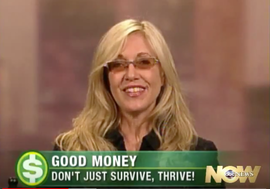 Natalie Wynne Pace is an Advocate for Sustainability, Financial Literacy & Women's Empowerment. Natalie is the bestselling author of The Power of 8 Billion: It's Up to Us and is the co-creator of the Earth Gratitude Project. She has been ranked as a No. 1 stock picker, above over 835 A-list pundits, by an independent tracking agency (TipsTraders). Her book The ABCs of Money remained at or near the #1 Investing Basics e-book on Amazon for over 3 years (in its vertical), with over 120,000 downloads and a mean 5-star ranking. The 5th edition of The ABCs of Money was released on September 17, 2021. Natalie Pace's easy as a pie chart nest egg strategies earned gains in the last two recessions and have outperformed the bull markets in between. That is why her Investor Educational Retreats, books and private coaching are enthusiastically recommended by Nobel Prize winning economist Gary S. Becker, TD AMERITRADE chairman Joe Moglia, Kay Koplovitz and many Main Street investors who have transformed their lives using her Thrive Budget and investing strategies. Click to view a video testimonial from Nilo Bolden. Check out Natalie Pace's Apple Podcast. Watch videoconferences and webinars on Youtube. Other Blogs of Interest Writers Strike, While Streaming CEOs Rake In Hundreds of Millions Annually. I Lost $100,000. Investors Ask Natalie. Artificial Intelligence Report. Micron Banned in China. Intel Slashes Dividend. Buffett Loses $23 Billion. Branson's Virgin Orbit Declares Bankruptcy. Insurance Company Risks. Schwab Loses $41 Billion in Cash Deposits. The Debt Ceiling Crisis. What's at Stake? Fiat. Crypto. Gold. BRICS. Real Estate. Alternative Investments. BRICS Currency. Will the Dollar Become Extinct? Empty Office Buildings & Malls. Frozen Housing Market. The Online Global Earth Gratitude Celebration 7 Green Life Hacks The Debt Ceiling. Will the U.S. Stop Paying Bills in June? Fossil Fuels Touch Every Part of Our Lives Are There Any Safe, Green Banks? 8 Fires the Federal Reserve Board Needs to Put Out. 7 Ways to Stash Your Cash Now. Lessons from the Silicon Valley Bank Failure. The 2 Best Solar Stocks Which Countries Offer the Highest Yield for the Lowest Risk? Rebalance By the End of March Solar, EVs, Housing, HSAs -- the Highest-Yield in 2023? Are You Anxious or Depressed over Money? Why We Are Underweighting Banks and the Financial Industry. You Stream all the Channels. Should You Invest, Too? NASDAQ is Still Down -26%. Are Meta & Snap a Buy? 2023 Bond Strategy Emotions are Not Your Friend in Investing Investor IQ Test Investor IQ Test Answers Bonds Lost -26%, Silver Held Strong. 2023 Crystal Ball for Stocks, Bonds, Real Estate, Cannabis, Gold, Silver. Tilray: The Constellation Brands of Cannabis New Year, New Healthier You Tesla's $644 Billion Fall From Mars Silver's Quiet Rally. Save Thousands Annually With Smarter Energy Choices Is Your FDIC-Insured Cash Really Safe? Money Market Funds, FDIC, SIPC: Are Any of Them Safe? My 24-Year-Old is Itching to Buy a Condo. Should I Help Him? The 12-Step Guide to Successful Investing. Gardeners Creating Sanctuary & Solutions in Food Deserts. The Bank Bail-in Plan on Your Dime. Rebalancing Your Nest Egg IQ Test. Answers to the Rebalancing Your Nest Egg IQ Test. Important Disclaimers Please note: Natalie Pace does not act or operate like a broker. She reports on financial news, and is one of the most trusted sources of financial literacy, education and forensic analysis in the world. Natalie Pace educates and informs individual investors to give investors a competitive edge in their personal decision-making. Any publicly traded companies or funds mentioned by Natalie Pace are not intended to be buy or sell recommendations. ALWAYS do your research and consult an experienced, reputable financial professional before buying or selling any security, and consider your long-term goals and strategies. Investors should NOT be all in on any asset class or individual stocks. Your retirement plan should reflect a diversified strategy, which has been designed with the assistance of a financial professional who is familiar with your goals, risk tolerance, tax needs and more. The "trading" portion of your portfolio should be a very small part of your investment strategy, and the amount of money you invest into individual companies should never be greater than your experience, wisdom, knowledge and patience. Information has been obtained from sources believed to be reliable. However, NataliePace.com does not warrant its completeness or accuracy. Opinions constitute our judgment as of the date of this publication and are subject to change without notice. This material is not intended as an offer or solicitation for the purchase or sale of any financial instrument. Securities, financial instruments or strategies mentioned herein may not be suitable for all investors. Streaming CEOs Rake in Record Compensation. Writers Strike. Recently, I saw a story by Alec Baldwin, saying that he thought there might’ve been an entertainment executive who got paid $240 million in one year alone. A quarter of a billion dollar payday sounded outlandish, so he wanted someone to verify it. Well, the number is right. In 2022, Warner Bros. Discovery CEO David. M. Zaslav received total compensation of $246.6 million, which probably played into the boos he received at the Boston University Commencement on May 21, 2023. What’s even more interesting is that Warner Brothers Discovery went on to lose -$7.3 billion in 2022. Ari Emmanuel, the CEO of William Morris Endeavor received even more, with total compensation ringing up to a staggering $308.2 million. Here’s a summary of what 8 different CEOs were compensated over the last three years. CEO Salary Has Skyrocketed According to the Economic Policy Institute, CEO pay has “skyrocketed” by 1,322% since 1978. Over the same period, minimum wage went from $3.10/hour to $7.25/hour (DOL.gov). Some cities, like Los Angeles, California, have a minimum wage of $15/hour. According to MIT, a livable wage in LA starts at $21/hour. So should CEOs be compensated at rates that are so much higher than the talent that gives them the content? How much does Jason Sudeikis make for Ted Lasso? How much did Jim Cameron make for Avatar? Those two are some of the top earners in terms of writing. So, how do regular writers fair in the equation? And how will the Writer’s Strike impact the earnings at the studios? Average Compensation for Writers According to the Writers Guild of America, writers make a median amount of about $250,000 for a first draft. At the same time, there is a wide disparity between the pay rate of the superstars and the crew around the table. According to the Writers Guild, 49% of TV writers are paid the minimum rate, and many members are not making a living wage. It’s also important to understand that many writers are not earning an annual salary. For instance, Jason Sudeikis reportedly got paid $1 million an episode for season three of Ted Lasso. However, it took two years for the season’s 12 episodes to be aired. James Cameron scored a stunning payday for Avatar and Avatar: The Way of Water, reportedly at $350 million and $95 million respectively (with most of the compensation coming on Cameron’s cut of the performance success). Avatar came out in 2009, while the sequel didn’t hit theaters until 2022. If a normal writer has 13 years between projects, that median $250,000 for a script becomes a poverty wage. A gap between gigs could also put your pension and health care at risk. When you consider that a livable wage in Los Angeles would be at least $115,000 a year for someone with two children, if a writer is steadily working, then s/he should be living better than just hand to mouth, but not by a lot. Basic needs would eat up half of the salary, leaving only a little cushion for emergencies, retirement plans, vacations and any type of splurge. Housing alone in Los Angeles can be $25,000 a year. If you have two kids, transportation could cost another $12,000 – more when gas prices soar – with childcare costs above $24,000. Newer writers are receiving $100,000 when their screenplay is sold. Statistics show us that most Millennials and Gen Z are spending 30% or more of their income on housing. Income Disparity, and Wealth Accumulation at the Very Top CEOs are certainly making an outsized salary. However, they are also paying a lower tax rate, as most of their compensation comes in the form of stock, which is taxed at a much lower rate than earned income. Additionally, if we look at the Forbes Billionaire’s List, the top billionaires are all anti-union. A few companies, like Google, Amazon and Microsoft, have recently organized. However, there is a very strong correlation between who makes it to billionaire status, and how little of that trickles down to their employees. When labor costs too much, they move it to a developing world country – if they can. That’s not as easy to do with talent, like writing. Writers and celebrities who produce hits and take something on the backend are the most successful. Michael Jordan owns a piece of the Nike Air Jordan brand. Hopefully Zoe Saldana gets a little something from Avatar, above her $8 million actor’s fee. The Profitability Argument CEOs argue that margins and profitability are lean. As I mentioned at the top of this article, Warner Bros. Discovery lost -$7.3 billion in 2022. However, Disney earned $3 billion and Netflix earned $4.5 billion. Below is a Stock Report Card on some of the top studios. As you can see, no studio comes close to Apple’s 25% profit margins (with iPhone and Apple watch factories in China). With a potential recession in 2023, studios are, sadly, laying people off. Variety reported that Paramount will be laying off 25% of its staff. Paramount isn’t the only studio cutting costs. Disney is laying off 7,000 people in the U.S. Amazon Studios is also trimming back. How Will the Strike Affect the Studios? The studios cannot charge monthly streaming fees for reruns. CEOs will still receive rich compensation packages, in the tens of millions. However, their bonus compensation and stock awards might not be as robust as they were in 2022. The longer the Writers’ Strike extends, the uglier the studio quarterly earnings reports will look in the 2nd half of 2023. Bottom Line Income disparity, wage stagnation and inflation have hit a lot of workers across the land. While A-list writers can afford to live in La La Land, many gig writers have gaps in their employment, and are going to have trouble making ends meet. When life doesn’t add up and employees can’t make a living by working, we end up with lofty levels of people who stop looking for work, a very tight labor market and the potential for social unrest, like strikes. With margins pretty tight, stiff streaming competition and a potential 2023 recession, studios are cutting costs. Will the writers and the studios find common ground soon? It’s in everyone’s best interest, including the overpaid CEOs. Email [email protected] or call 310-430-2397 if you are interested in learning time-proven investing, budgeting, debt reduction, college prep, ESG and home buying solutions that will transform your life and heal our planet at our next Financial Freedom Retreat. We spend one full day on what's safe, helping you to protect your wealth and reduce money stress.  Join us for our Online Financial Freedom Retreat. June 10-12, 2023. Email [email protected] to learn more. Register with friends and family to receive the best price. Click for testimonials, pricing, hours & details. This is likely the last retreat before Oct. It's a great idea to protect your wealth before you go on summer vacation.  Join us for our Restormel Royal Immersive Adventure Retreat. March 8-15, 2024. Email [email protected] to learn more. Register with friends and family to receive the best price. Click for testimonials, pricing, hours & details. There is very limited availability, and you must register early to ensure that you get the exact room you want! 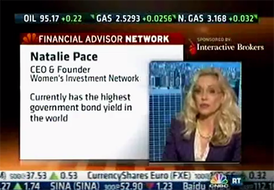 Natalie Wynne Pace is an Advocate for Sustainability, Financial Literacy & Women's Empowerment. Natalie is the bestselling author of The Power of 8 Billion: It's Up to Us and is the co-creator of the Earth Gratitude Project. She has been ranked as a No. 1 stock picker, above over 835 A-list pundits, by an independent tracking agency (TipsTraders). Her book The ABCs of Money remained at or near the #1 Investing Basics e-book on Amazon for over 3 years (in its vertical), with over 120,000 downloads and a mean 5-star ranking. The 5th edition of The ABCs of Money was released on September 17, 2021. Natalie Pace's easy as a pie chart nest egg strategies earned gains in the last two recessions and have outperformed the bull markets in between. That is why her Investor Educational Retreats, books and private coaching are enthusiastically recommended by Nobel Prize winning economist Gary S. Becker, TD AMERITRADE chairman Joe Moglia, Kay Koplovitz and many Main Street investors who have transformed their lives using her Thrive Budget and investing strategies. Click to view a video testimonial from Nilo Bolden. Check out Natalie Pace's Apple Podcast. Watch videoconferences and webinars on Youtube. Other Blogs of Interest I Lost $100,000. Investors Ask Natalie. Artificial Intelligence Report. Micron Banned in China. Intel Slashes Dividend. Buffett Loses $23 Billion. Branson's Virgin Orbit Declares Bankruptcy. Insurance Company Risks. Schwab Loses $41 Billion in Cash Deposits. The Debt Ceiling Crisis. What's at Stake? Fiat. Crypto. Gold. BRICS. Real Estate. Alternative Investments. BRICS Currency. Will the Dollar Become Extinct? Empty Office Buildings & Malls. Frozen Housing Market. The Online Global Earth Gratitude Celebration 7 Green Life Hacks The Debt Ceiling. Will the U.S. Stop Paying Bills in June? Fossil Fuels Touch Every Part of Our Lives Are There Any Safe, Green Banks? 8 Fires the Federal Reserve Board Needs to Put Out. 7 Ways to Stash Your Cash Now. Lessons from the Silicon Valley Bank Failure. The 2 Best Solar Stocks Which Countries Offer the Highest Yield for the Lowest Risk? Rebalance By the End of March Solar, EVs, Housing, HSAs -- the Highest-Yield in 2023? Are You Anxious or Depressed over Money? Why We Are Underweighting Banks and the Financial Industry. You Stream all the Channels. Should You Invest, Too? NASDAQ is Still Down -26%. Are Meta & Snap a Buy? 2023 Bond Strategy Emotions are Not Your Friend in Investing Investor IQ Test Investor IQ Test Answers Bonds Lost -26%, Silver Held Strong. 2023 Crystal Ball for Stocks, Bonds, Real Estate, Cannabis, Gold, Silver. Tilray: The Constellation Brands of Cannabis New Year, New Healthier You Tesla's $644 Billion Fall From Mars Silver's Quiet Rally. Free Holiday Gift. Stocking Stuffers Under $10. Cash Burn & Inflation Toasted the Plant-Based Protein Companies Save Thousands Annually With Smarter Energy Choices Is Your FDIC-Insured Cash Really Safe? Giving Tuesday Tips to Make Your Charitable Contribution a Triple Win. Is Your Pension Plan Stealing From You? The FTX Crypto Fall of a Billionaire (SBF). Crypto, Gold, Silver: Not So Safe Havens. Will Ted Lasso Save Christmas? 3Q will be Released This Thursday. Apple and the R Word. Yield is Back. But It's Tricky. The Real Reason Why OPEC Cut Oil Production. The Inflation Buster Budgeting and Investing Plan. No. Elon Musk Doesn't Live in a Boxabl. IRAs Offer More Freedom and Protection Than 401ks. Will There Be a Santa Rally 2022? What's Safe in a Debt World? Not Bonds. Will Your Favorite Chinese Company be Delisted? 75% of New Homeowners Have Buyer's Remorse Clean Energy Gets a Green Light from Congress. Fix Money Issues. Improve Your Relationships. 24% of House Sales Cancelled in the 2nd Quarter. 3 Things to Do Before July 28th. Recession Risks Rise + a Fairly Safe High-Yield Bond DAQO Doubles. Solar Shines. Which Company is Next in Line? Tesla Sales Disappoint. Asian EV Competition Heats Up. 10 Wealth Strategies of the Rich Copper Prices Plunge Colombia and Indonesia: Should You Invest? 10 Misleading Broker/Salesman Pitches. Why are Banks and Dividend Stocks Losing Money? ESG Investing: Missing the E. Bitcoin Crashes. Crypto, Gold and Stocks All Crash. The U.S. House Decriminalizes Cannabis Again. The Risk of Recession in 6 Charts. High Gas Prices How Will Russian Boycotts Effect U.S. Multinational Companies? Oil and Gas Trends During Wartime Russia Invades Ukraine. How Have Stocks Responded in Past Wars? 2022 Crystal Ball in Stocks, Real Estate, Crypto, Cannabis, Gold, Silver & More. Interview with the Chief Investment Strategist of Charles Schwab & Co., Inc. Stocks Enter a Correction What's Safe in a Debt World? Money Market Funds, FDIC, SIPC: Are Any of Them Safe? My 24-Year-Old is Itching to Buy a Condo. Should I Help Him? The 12-Step Guide to Successful Investing. Gardeners Creating Sanctuary & Solutions in Food Deserts. The Bank Bail-in Plan on Your Dime. Rebalancing Your Nest Egg IQ Test. Answers to the Rebalancing Your Nest Egg IQ Test. Important Disclaimers Please note: Natalie Pace does not act or operate like a broker. She reports on financial news, and is one of the most trusted sources of financial literacy, education and forensic analysis in the world. Natalie Pace educates and informs individual investors to give investors a competitive edge in their personal decision-making. Any publicly traded companies or funds mentioned by Natalie Pace are not intended to be buy or sell recommendations. ALWAYS do your research and consult an experienced, reputable financial professional before buying or selling any security, and consider your long-term goals and strategies. Investors should NOT be all in on any asset class or individual stocks. Your retirement plan should reflect a diversified strategy, which has been designed with the assistance of a financial professional who is familiar with your goals, risk tolerance, tax needs and more. The "trading" portion of your portfolio should be a very small part of your investment strategy, and the amount of money you invest into individual companies should never be greater than your experience, wisdom, knowledge and patience. Information has been obtained from sources believed to be reliable. However, NataliePace.com does not warrant its completeness or accuracy. Opinions constitute our judgment as of the date of this publication and are subject to change without notice. This material is not intended as an offer or solicitation for the purchase or sale of any financial instrument. Securities, financial instruments or strategies mentioned herein may not be suitable for all investors. |
AuthorNatalie Pace is the co-creator of the Earth Gratitude Project and the author of The Power of 8 Billion: It's Up to Us, The ABCs of Money, The ABCs of Money for College, The Gratitude Game and Put Your Money Where Your Heart Is. She is a repeat guest & speaker on national news shows and stages. She has been ranked the No. 1 stock picker, above over 830 A-list pundits, by an independent tracking agency, and has been saving homes and nest eggs since 1999. Archives
July 2024
Categories |






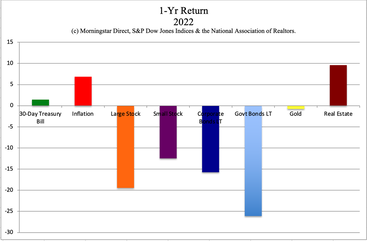
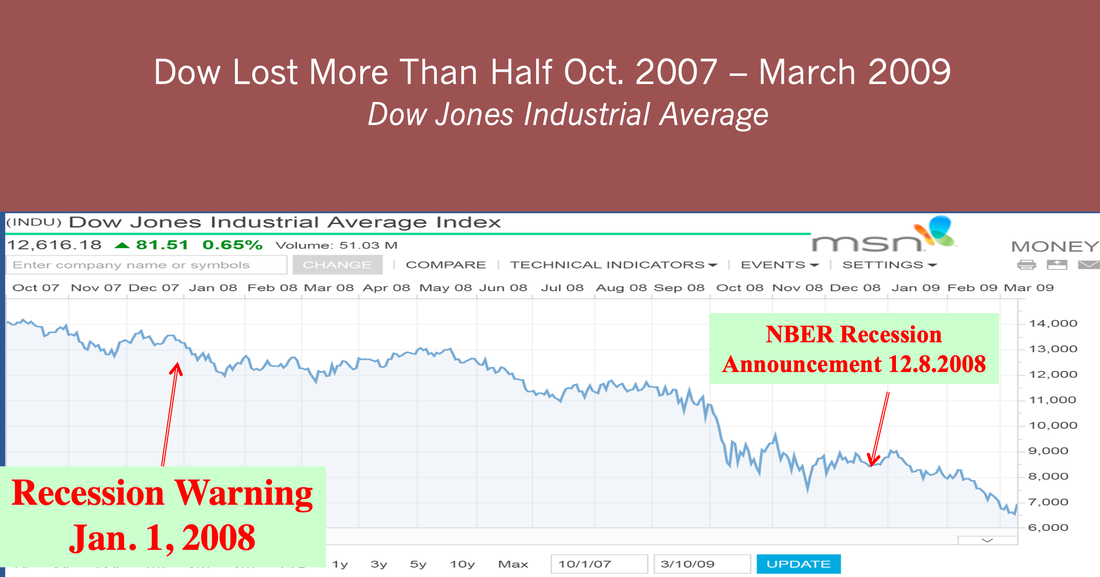
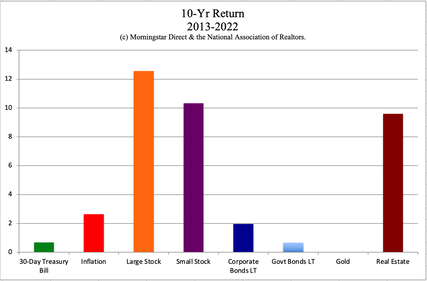
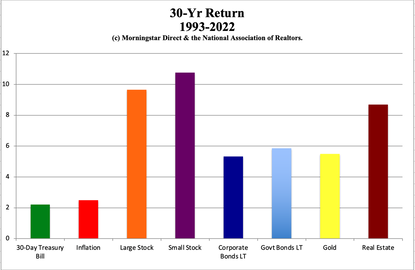
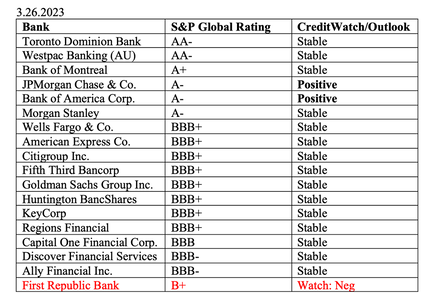
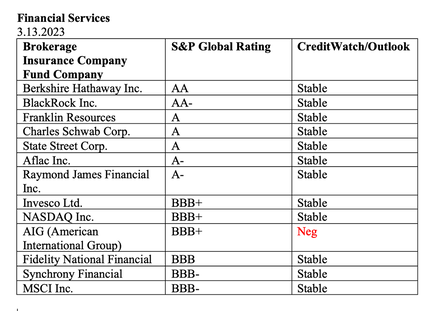
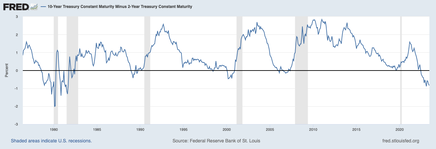

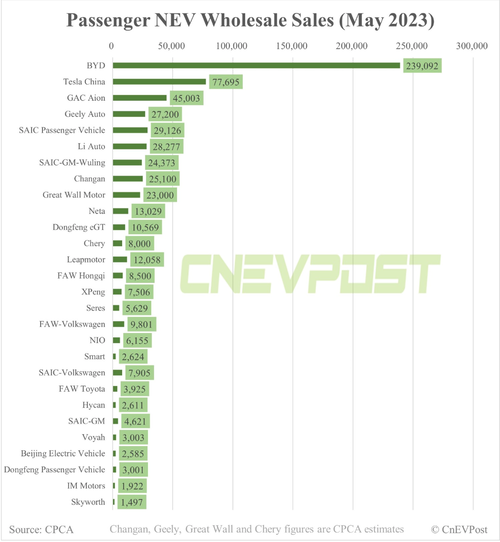
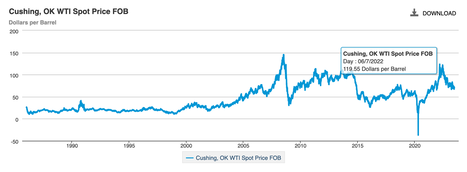
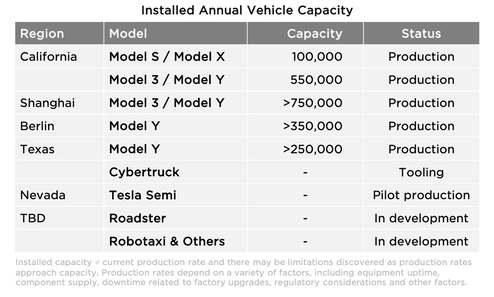

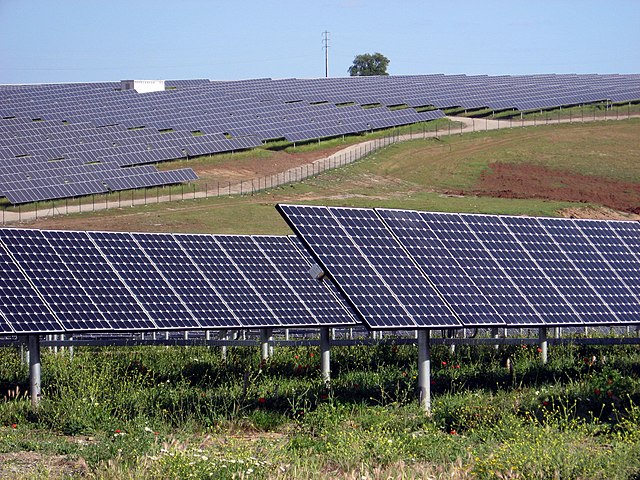
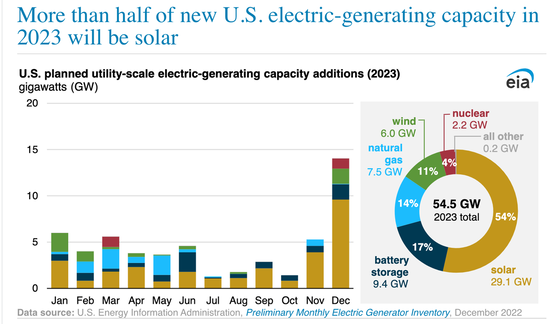
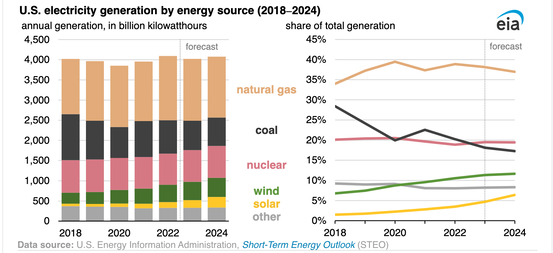
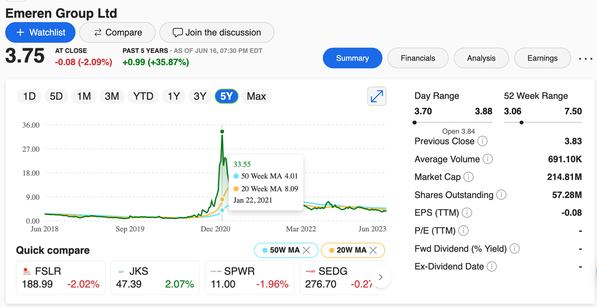

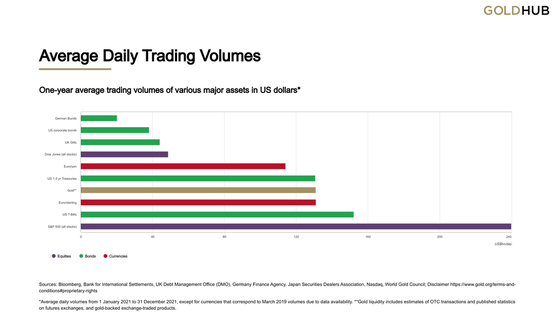
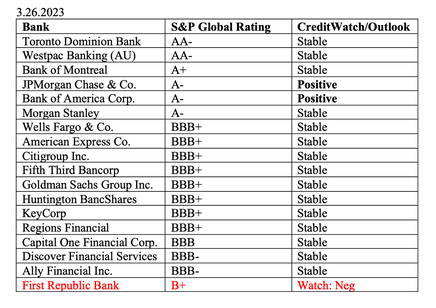
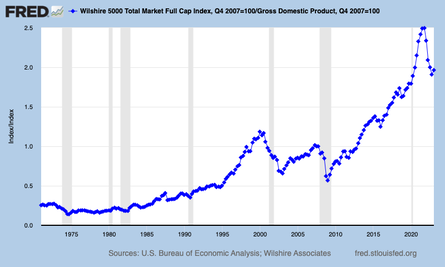
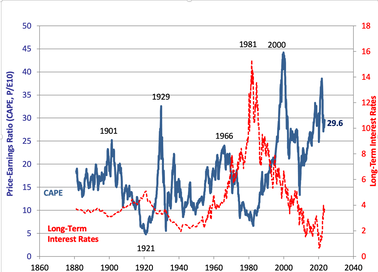
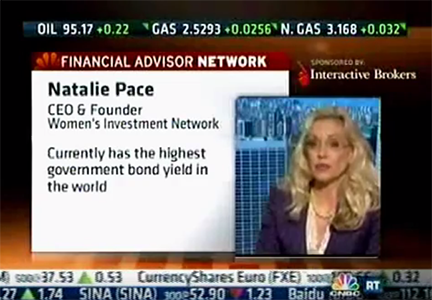
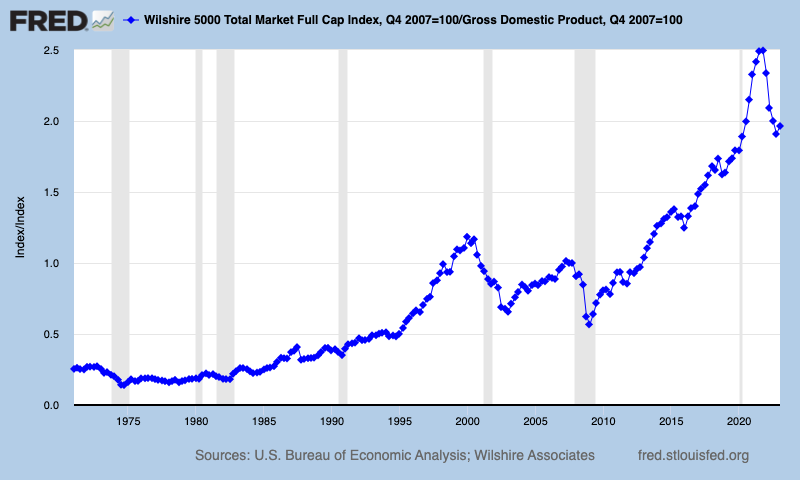
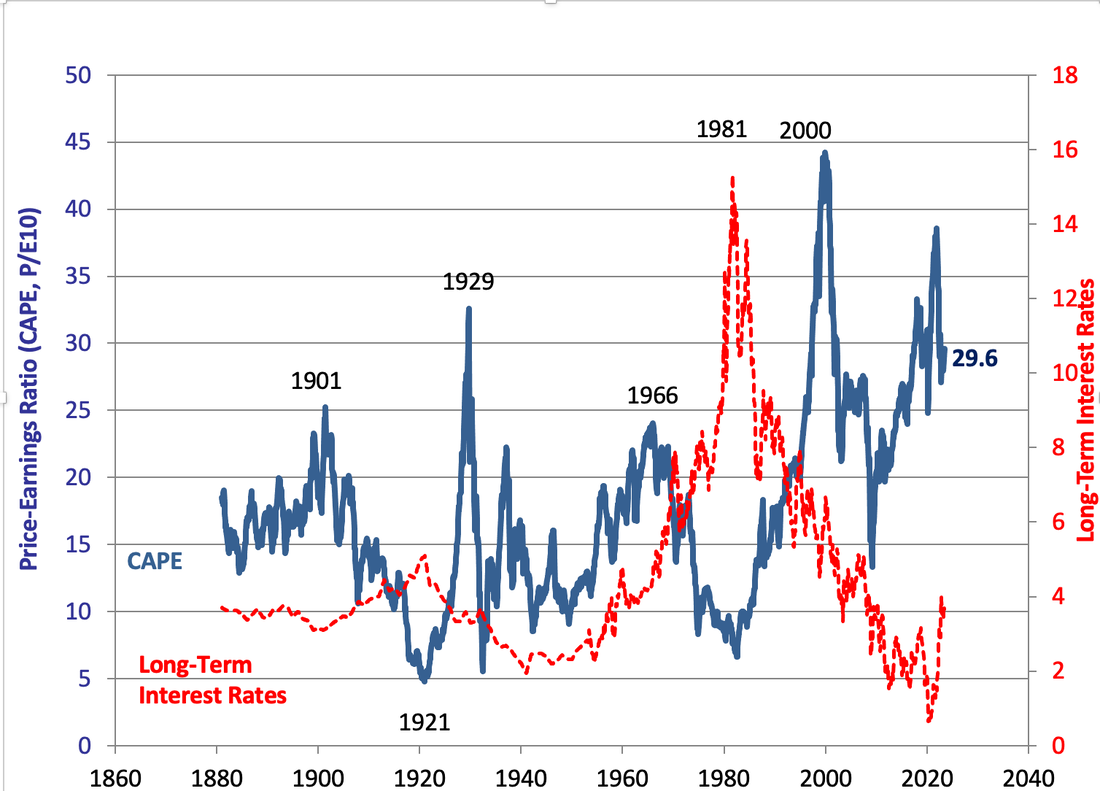
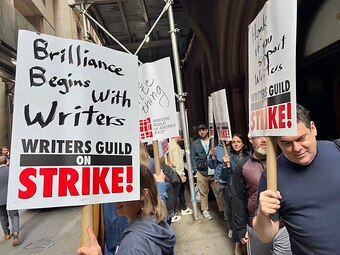
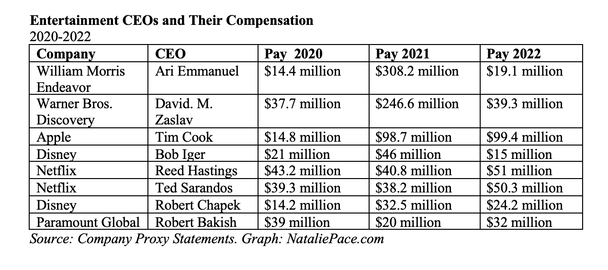
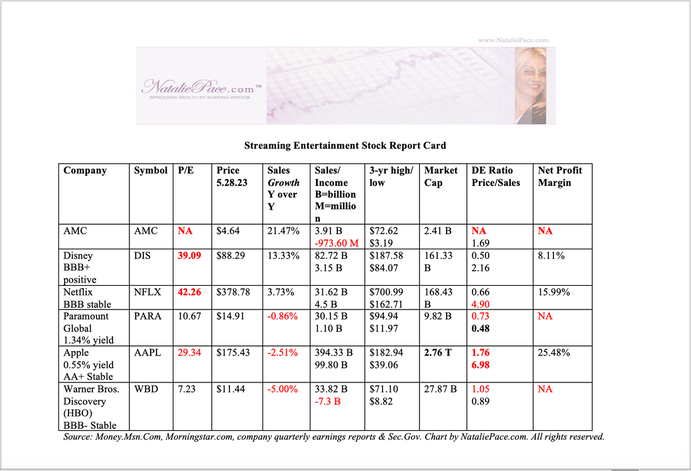
 RSS Feed
RSS Feed